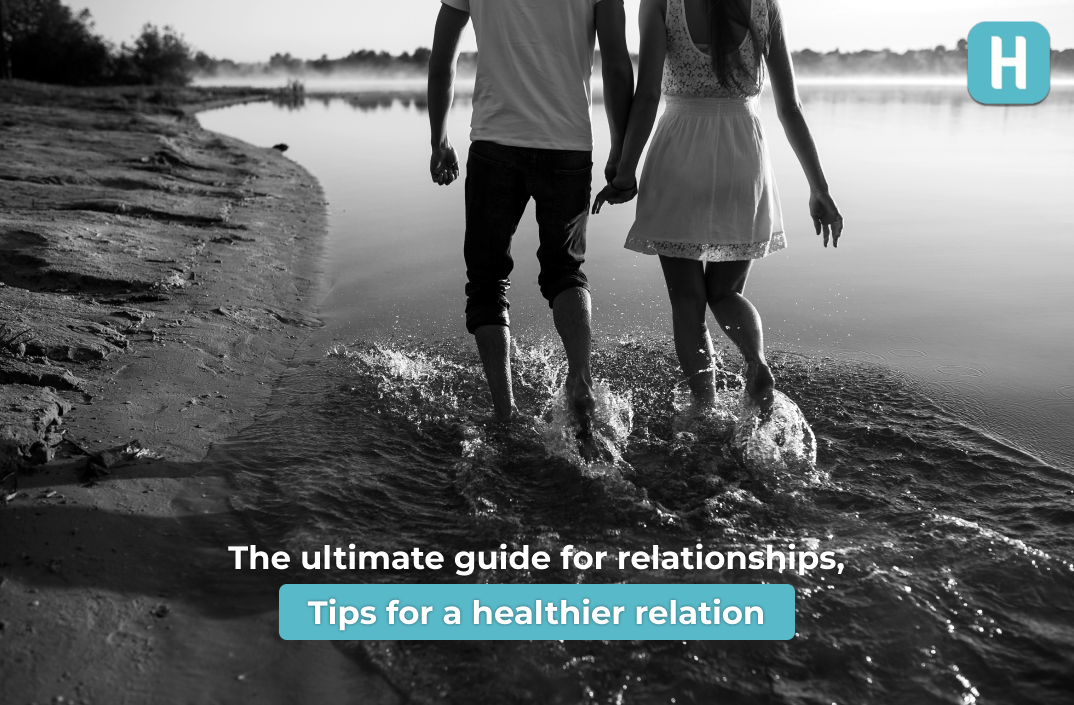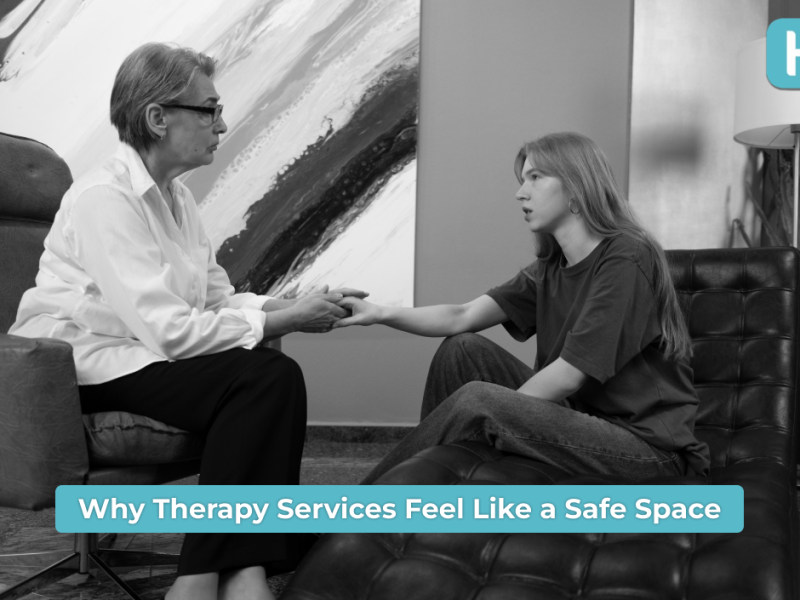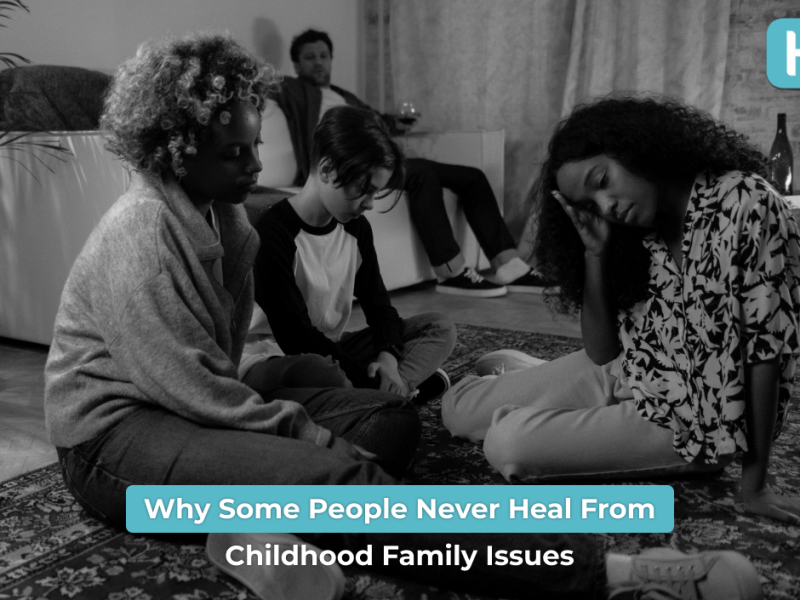Romantic, friendly, or familial relationships characterize our emotional well-being: they make our day-to-day activities possible, give us a helping hand when we need it, and make us feel we belong. Yet, while doing all that, these relationships have problems: misunderstandings, poor communication, or just the fact that the relationship has changed over the years. If you are looking for ways to develop relationships that are stronger than they presently are, then you have come to the right place.
This relationship guide will provide you with the ultimate advice and techniques to help you build healthier types of relationships. It contains everything from communication strategies down to emotional support, which would be needed in any relationship for the right course of action. So let us get going with it!
Characteristics of a Healthy Relationship
Before everything else, it is important to define what a healthy relationship entails. A healthy relationship is, in essence, a relationship in which all parties are held mutually accountable while being respectful of one another; trust and open communication become the arteries of one another’s behalf. Two partners or friends who share feelings, work through conflicts, and encourage one another through thick and thin usually have a more vital, stable relationship. Conversely, unhealthy relationships include instances of imperfect communication skills, the absence of trust, and even abuse. Such relationships drain energy, wreck personal self-esteem, and cause long-term damage. But do not be worried; if you are reading this, you are paving the way for changing all your relationships.
A Most Rational Approach to Relationship Success: Building a Strong Foundation
Healthy relationships do not just happen; they take work, understanding, and active participation from both sides. Here are the basic components that make up the foundations of a successful relationship:

1. Communication
Any relationship depends on communication from the very start. Both sides need to feel free to voice their demands, worries, and wishes in a nonjudgmental environment. Suggestions follow:
- Listen attentively: Give what the other individual is saying without interruption or interpreting your attention.
Express thoughts and emotions with honesty but also with kindness; speak truthfully.
According to the University of Denver, communication-challenged couples are twice as likely to get divorced!
2. Trust and Honesty
Trust is the foundation of any strong relationship. Without it, insecurities and doubts begin to creep in, often leading to conflict. To foster trust, practice honesty and consistency in your words and actions.
Be transparent, even when it’s difficult.
Avoid secrecy or misleading actions that could cause doubt.
Did you know? Studies show that couples who openly discuss their financial habits and concerns are 40% more likely to report relationship satisfaction than those who avoid the subject.
3. Respect for Boundaries
Everyone has personal boundaries, and respecting them is key to a healthy relationship. This includes physical boundaries, emotional needs, and even time for individual hobbies or socializing.
- Set clear boundaries and communicate them early on.
- Be understanding and avoid pushing someone’s limits.
Showing oneself to one another during trying circumstances tightens bonds. One of the main components of emotional support is empathy—that is, understanding and sharing your friend or lover’s sentiments.
- Give solace and confidence as your loved one struggles.
- Don’t give uninvited counsel unless asked.
Couples who show empathy during conflict resolution are 75% less likely to split, according to a 2017 study in the Journal of Personality and Social Psychology.
5. Delightful Times Together
Meaningful time spent together can improve emotional closeness and deepen your relationship. Whether it be a weekly date night or an afternoon walk, shared experiences aid in the formation of long-lasting memories.
Plan activities that let you link without interruption.
The busyness of daily life should not cause your relationship to disappear.
6. Accommodation and Flexibility
Any long-lasting relationship requires compromise. Since no two people are identical, there will be times when you must meet in the middle.
For the sake of the relationship, be prepared to change your views or plans.
When presented with obstacles, be adaptable.
Long-term Relationship Guide: Finding Your Way Through the Swings
Long-term partnerships need constant work. Partners may grow apart or lose motivation as the first buzz wears off. Here are some ways you can make sure your marriage stays strong over time:
1. Keep the romance burning.
Though the first flame can occasionally die out in long-term partnerships, that does not mean the relationship will fail. Maintaining the love affair alive is absolutely necessary:
Surprise your partner with little loving actions.
Think back on the beginning of your relationship and relive those memorable occasions.
Did you know? Couples who give romance and closeness top priority throughout their relationship have a 30% higher satisfaction rate, according to the Journal of Marriage and Family.
2. Adjust with Life Changes Together
Life is always evolving; new jobs, relocation, offspring, or health difficulties abound. As a team, one must change. Help one another through changes and embrace the fresh environment.
- Be patient with each other as you navigate challenges.
- Reassure each other that you’re in it together.
3. Address Issues Early On
In long-term relationships, issues can build up if not addressed early. This could range from feelings of neglect to unresolved arguments. Address conflicts as soon as they arise to prevent resentment from festering.
Don’t ignore the small stuff, it’s the accumulation of minor issues that can cause bigger problems.
Work on solving problems as a team, rather than blaming one another.
Marriage Survival Guide: Keeping Your Marriage Strong
Marriage, in particular, can be a rewarding but challenging journey. Here are some tips for ensuring the longevity of your marriage:
1. Know the love languages of each other.
For couples, The 5 Love Languages by Dr. Gary Chapman is a necessity. Knowing your partner’s love language—physical touch, acts of service, words of affirmation, quality time, or gifts helps you express love in ways that are most important to them.
Shocking Statistic: Chapman’s study points to 70% of marriages breaking down as spouses’ lack of understanding of one another’s love languages.
2. Emphasize Cooperation
You are partners in a marriage, not opponents. Work together toward shared objectives and be each other’s cheerleaders.
Honour your achievements, both little and large.
Knowing you have each other’s backs, encourage one another through difficulties.
3. Obtain marriage counseling when necessary.
Seeking expert advice to overcome marriage problems is not shameful. Better communication, conflict resolution, and emotional closeness can all be greatly aided by marriage counseling.
As soon as you see problems, get treatment—don’t wait for the marriage to end.
Techniques of relationship therapy: solidifying your bond
Sometimes, partnerships run into difficulty. Relationship therapy can provide solutions to help you negotiate problems, including emotional distance, confidence concerns, or communication issues. Some good therapy approaches are:
Therapy based on cognitive behavior ( CBT )
Often employed in marriage therapy, CBT assists couples in identifying harmful thought patterns and replacing them with more positive, more practical ones. It enables both spouses to better communicate and understand how their behavior affects their marriage.
2. Emotionally Targeted Therapy (EFT)
EFT seeks to understand the emotional needs of each partner and strengthen emotional bonds. It helps couples mend past wounds and become more understanding of one another.
3. Approach Gottman
Developed by Drs. John and Julie Schwartz Gottman, this approach helps to enhance communication and conflict resolution through research-backed tools. It stresses the need to develop respect and common understanding.
4. Imago Treatment
Understanding the unmet demands of each partner is the center of Imago therapy, together with how those needs manifest in their behavior. Understanding the underlying reasons for disagreements and searching for solutions is greatly helped by this approach.
In conclusion, developing more solid, healthier relationships
Emphasizing the need for empathy, trust, and communication in every good relationship, the last guide on relationships, though they call for effort, relationships can blossom with commitment and the correct tools. Using these techniques will enable you to develop closer, healthier relationships, whether you are in a romantic relationship, marriage, or any significant interaction.
Keep in mind that while there is no one-size-fits-all guide, these concepts will enable you to lay the groundwork for a long-lasting and satisfying relationship. When necessary, don’t be afraid to ask for assistance; relationship therapy methods can provide further direction for handling obstacles.
Following the advice in this ultimate guide for relationship success will help you develop enduring, good relationships that will improve both your own life and the lives of those you love.
FAQs
Q1: What unlocks a long-lasting relationship?
Effective communication, mutual respect, and emotional support are the foundation here. Furthermore, preserving the strong relationship will be given first priority to quality time together and early resolution of disagreements.
Q2: How can I prolong my marriage?
Knowing your partner’s needs, using love languages, and getting expert help when needed can really strengthen your relationship and guarantee longevity in a marriage.
Q3: How do I manage disagreements in my relationship?
Early resolution of disagreements, honest communication, and an attempt to solve the problem free from fault. If required, look for professional relationship therapy strategies to negotiate challenging circumstances.
Q4: Is it really helpful to use relationship therapy?
Yes, CBT, EFT, and the Gottman Method are among counseling approaches shown to greatly enhance partners’ emotional intimacy and communication.
Q5: In a long-term relationship, how can I keep the passion alive?
Surprise your spouse with considerate gestures, recall the early days of your relationship, and schedule weekly date nights to keep that spark alive



